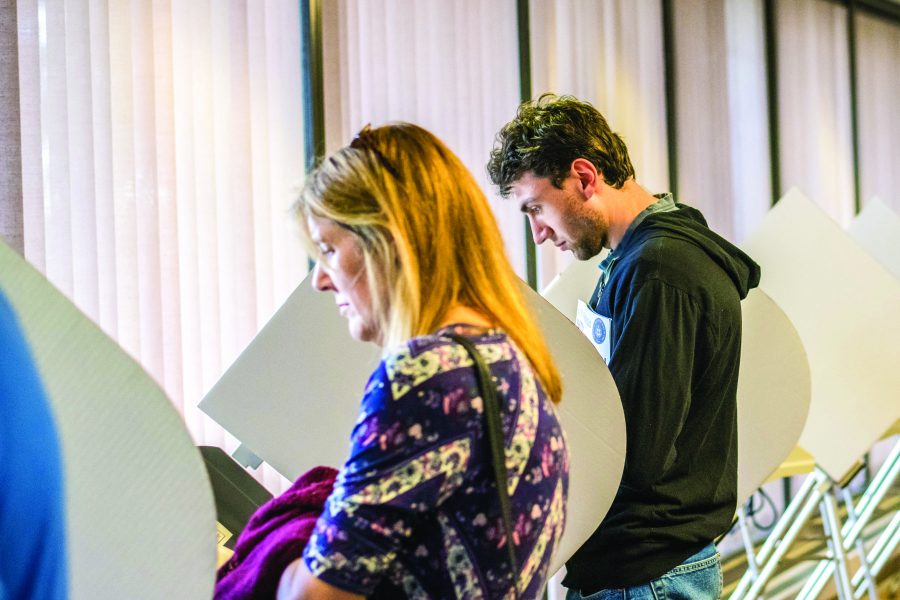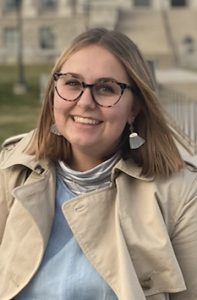Kincart: Prioritize Students on Election Day
People cast their votes during the Midterm Elections 2018 at the Salt Lake County Building in Salt Lake City, UT on Tuesday October 23, 2018. (Photo by Curtis Lin | Daily Utah Chronicle)
October 27, 2020
In mid-October, the ASUU Academic Senate passed a resolution to make Nov. 3, Election Day, an asynchronous learning day with no work due on the 3rd or 4th. They also passed a second resolution that encourages the University of Utah administration to deem Election Day a non-instructional day. Instead of heeding this recommendation, the University of Utah administration did not cancel classes but rather encouraged faculty to be flexible.
University administration did not do enough to encourage civic engagement on campus. Student voices were neglected. For all the talk about encouraging electoral participation as hosts of the vice-presidential debate, the university administration’s actions show that it was are little more than that — talk. Because of the university’s failure, it’s now up to faculty to empathize enough with students during this election season and prioritize civic engagement over a day’s worth of schoolwork.
In this election specifically, there is an immense need for young voices. The number of likely young voters is much higher than in previous years — giving young voters an even greater potential to shape this election. Because of this fact, young people should be encouraged to participate in the election. Unfortunately, students face plenty of challenges in the current political system, including youth voter suppression — the practice of discouraging and preventing young voices from being heard in the electoral process. Early voting has resulted in long lines recently, exacerbating current challenges by increasing the time it could take to vote. Now more than ever, it is important that students aren’t given any more obstacles in the electoral process.
Involvement in the electoral process extends beyond just voting, too. Such involvement can include serving as a poll worker, shuttling people to the polls or helping with last-minute campaign efforts. During the pandemic, student support in the practice of holding an election will be even more important than usual. In the 2018 general election, only 4% of poll workers were between the ages of 18 and 25 and 58% of poll workers were above the age of 61. These statistics are concerning given that seniors are at higher risk of contracting COVID-19. If young poll workers are not able to attend because of school constraints, in-person voting could become unnecessarily riskier.
The current stance of the university would force students to choose between the preservation of democracy and working towards their degree. There is a lot on the line for students this fall. The president-elect will need to address climate change, the student debt crisis, the future of health care and police reform. These are issues that young people are thinking about as they vote. Because of their relative youth, they are also issues that will impact younger voters more than most.
Stress around the 2020 presidential election was already high before the pandemic, but the pandemic has only exacerbated it. Election stress is real, and the university needs to let students take a day to process how this election affects them. If a winner is declared earlier than anticipated, let students take time to come to terms with the result on Nov. 4. If a result is yet to be declared, encourage students to pay attention to the progress of counting ballots. Some students may have just cast their first vote — this vote will be so much more meaningful if they can pay attention to the entire process without worrying about educational consequences. Either way, students’ minds will not be focused on lectures and coursework given the importance of this election.
Administration and faculty need to recognize what this election means to students. This election will be integral to the future of all students. Students will be focusing on the election whether or not classes are taking place. To address this phenomenon, the U’s faculty should prioritize students by canceling classes and postponing coursework surrounding the election.








